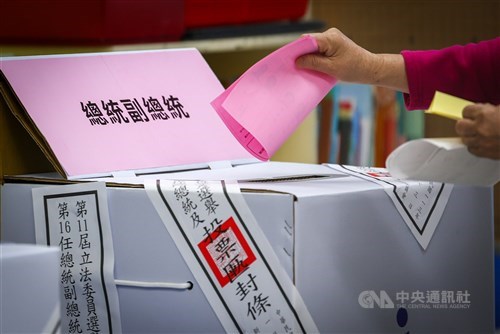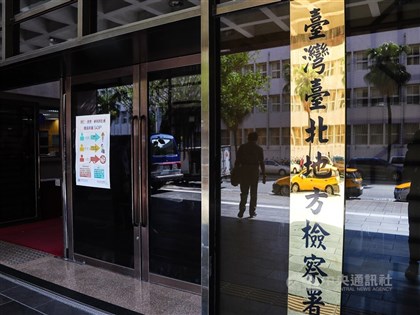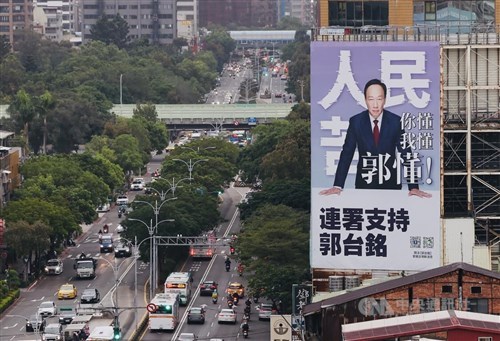ELECTION 2024 / DPP record slated by KMT, TPP candidates at vice presidential debate
01/01/2024 09:00 PM
Taiwan's two opposition vice presidential candidates used a debate forum to criticize the ruling Democratic Progressive Party's (DPP) record in office Monday, with the DPP nominee adopting a more defensive posture.
(Full text of the story is now in CNA English news archive. To view the full story, you will need to be a subscribed member of the CNA archive. To subscribe, please read here.)
More in ELECTION 2024
-
![5 suspects, including association head, indicted for election law breach]() 5 suspects, including association head, indicted for election law breachThe head of a new immigrant association and four other people have been indicted for suspected violations of Taiwan's election law as well as the Anti-Infiltration Act, according to the Ciaotou District Prosecutors Office in Kaohsiung.03/07/2024 08:11 PM
5 suspects, including association head, indicted for election law breachThe head of a new immigrant association and four other people have been indicted for suspected violations of Taiwan's election law as well as the Anti-Infiltration Act, according to the Ciaotou District Prosecutors Office in Kaohsiung.03/07/2024 08:11 PM -
![Taipei prosecutors indict 7 in Terry Gou signature-buying case]() Taipei prosecutors indict 7 in Terry Gou signature-buying caseTaipei prosecutors on Tuesday indicted seven people for stealing ID numbers from e-commerce sites to help business tycoon Terry Gou's (郭台銘) presidential petition drive last year.03/05/2024 05:52 PM
Taipei prosecutors indict 7 in Terry Gou signature-buying caseTaipei prosecutors on Tuesday indicted seven people for stealing ID numbers from e-commerce sites to help business tycoon Terry Gou's (郭台銘) presidential petition drive last year.03/05/2024 05:52 PM -
![Pingtung Council speaker indicted in Terry Guo signature buying case]() Pingtung Council speaker indicted in Terry Guo signature buying casePingtung County Council Speaker Chou Tien-lun (周典論) has been indicted on suspicion of buying signatures for business tycoon Terry Gou's (郭台銘) presidential run, the Pingtung District Prosecutors Office said Wednesday.02/21/2024 09:14 PM
Pingtung Council speaker indicted in Terry Guo signature buying casePingtung County Council Speaker Chou Tien-lun (周典論) has been indicted on suspicion of buying signatures for business tycoon Terry Gou's (郭台銘) presidential run, the Pingtung District Prosecutors Office said Wednesday.02/21/2024 09:14 PM
Latest
-
Business
Taiwan's dairy industry confident against US milk import competition
02/14/2026 03:24 PM -
Society
Taiwan to tackle forced labor issue after US trade deal
02/14/2026 02:38 PM -
Society
Taiwan's national freeway driver lounges: An oasis for weary travelers
02/14/2026 02:02 PM -
Business
5 things to know about the Taiwan-U.S. trade deal
02/14/2026 01:17 PM -
Society
Taiwan headline news
02/14/2026 10:02 AM


